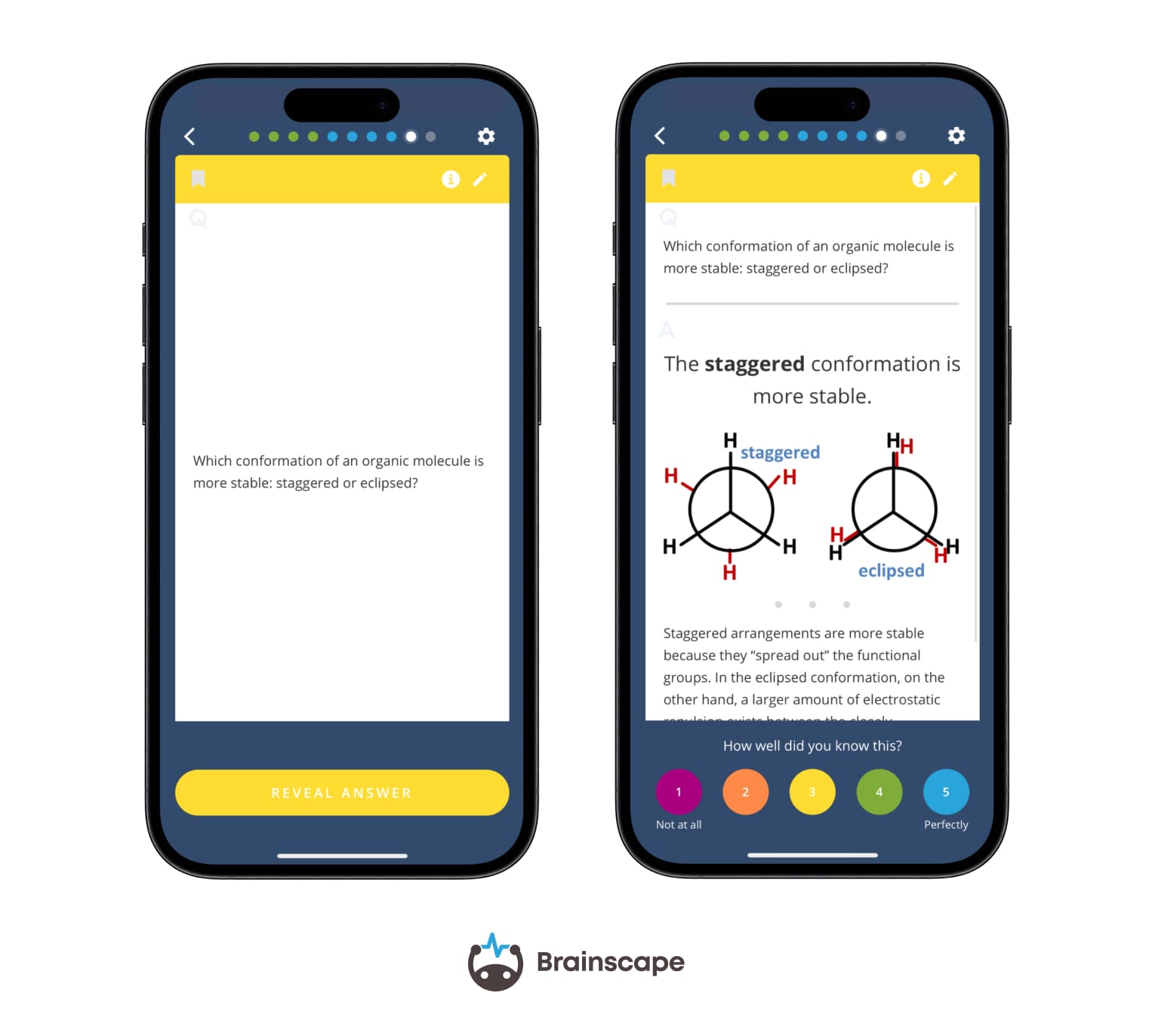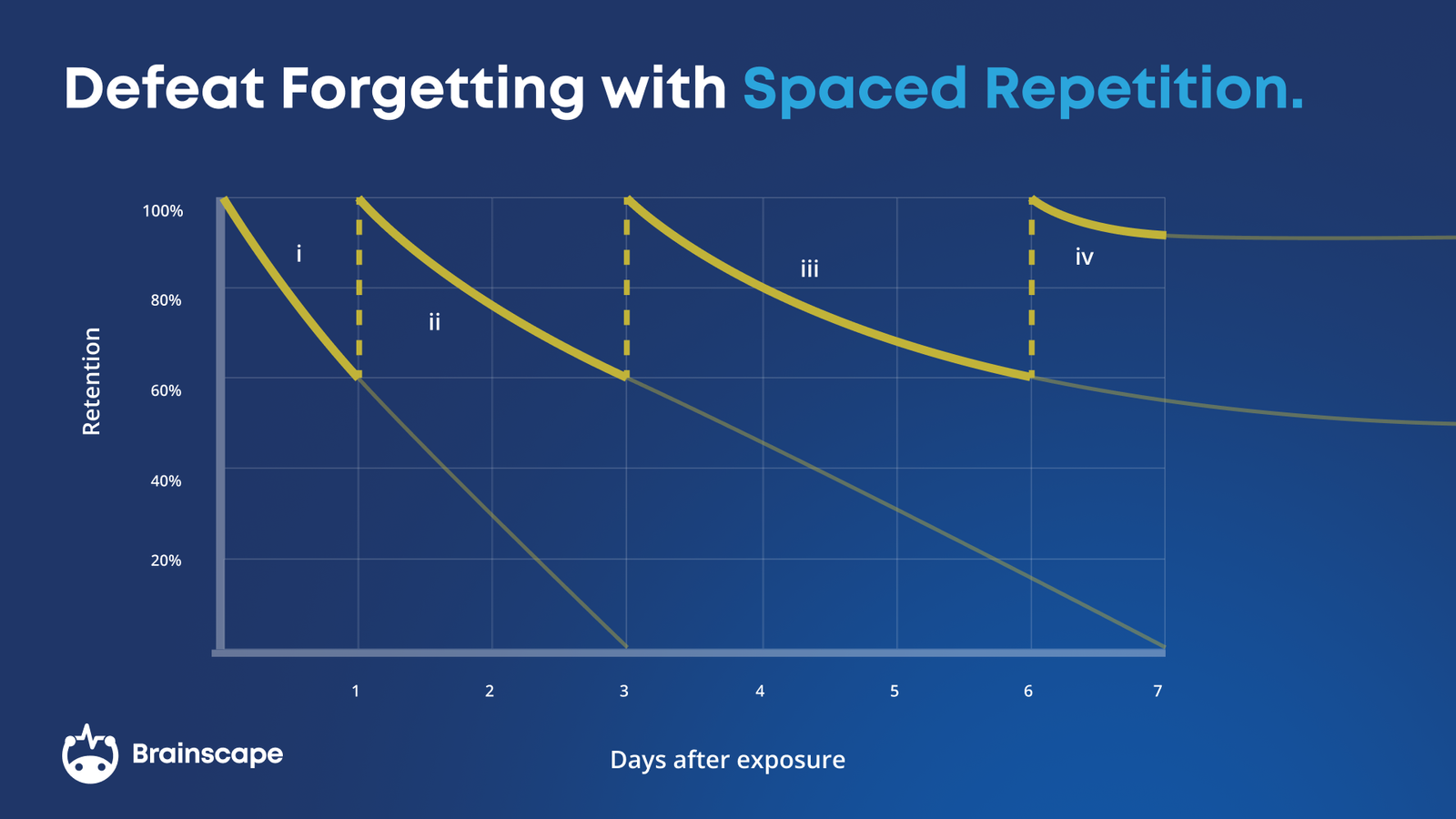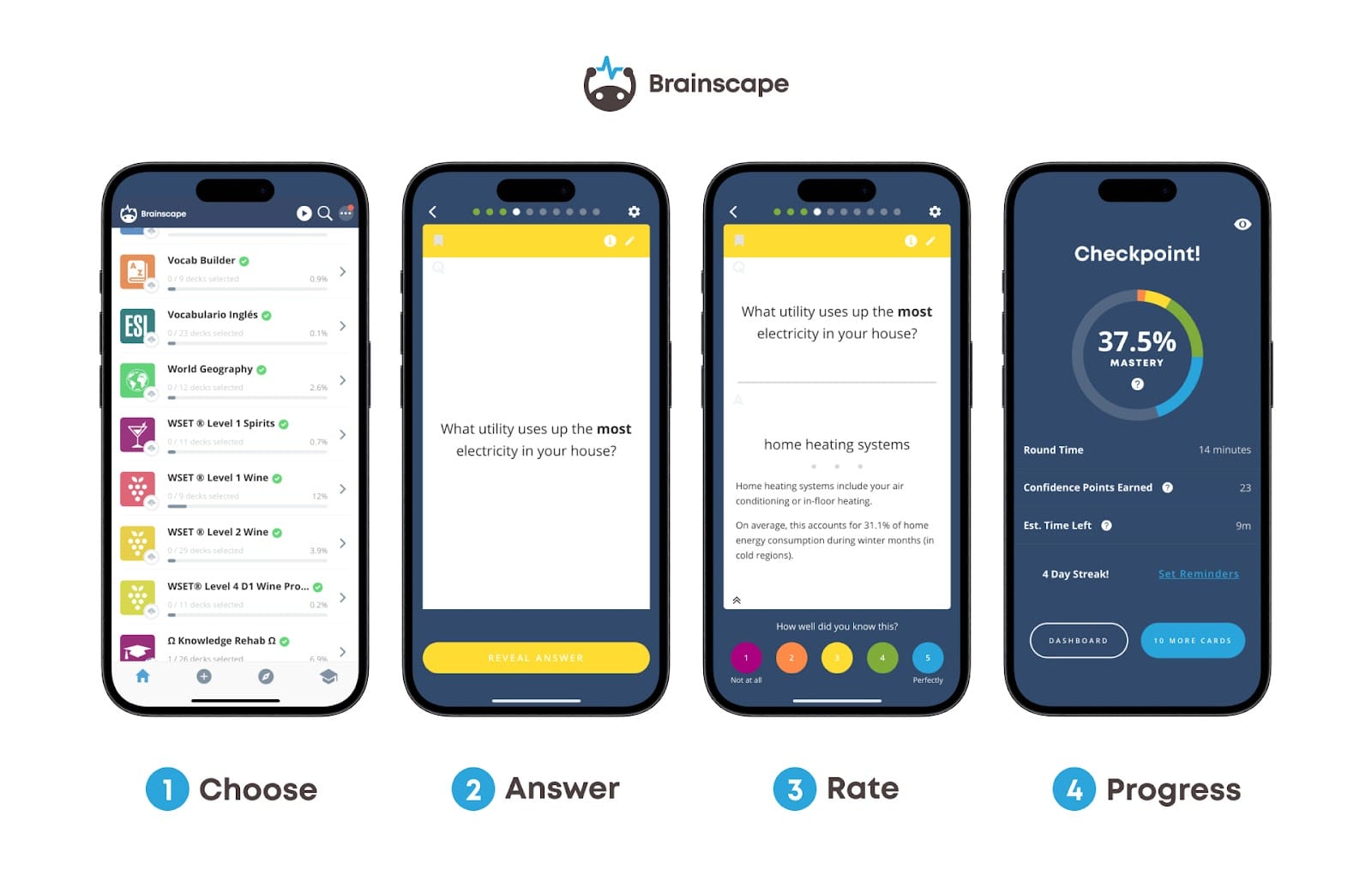You may think flashcards are for kids but there’s a reason this study method has thrived for literally hundreds of years: they work! In fact, flashcards are the most effective way for learners of all ages to quickly retain knowledge, especially when used properly. And there's science behind this.
Here are the top 3 reasons why flashcards are effective...
The Science Behind Why Flashcards are Effective for Studying

1. Flashcards Compel You to Actively Recall Information "From Scratch"
When you look at the front "question" side of a flashcard and think of the answer, you are engaging a mental faculty known as active recall. In other words, you are attempting to remember the concept from scratch rather than simply staring at the passage in your textbook or recognizing it on a multiple-choice quiz (and we all know that multiple-choice quizzes suck for studying).
Active recall has been shown to create stronger neuron connections for that memory trace. Since flashcards facilitate repetition so easily, they are the best way to create multiple memory-enhancing recall events. Some research has found that this kind of active recall retrieval practice leads to 150% better retention than passive studying.
The takeaway: flashcards are effective for studying because they make you pull information out of your memory (instead of just reading or recognizing it). This helps you build memories quicker and perform much better on tests.
2. Flashcards Engage Your Powers of Metacognition

When you reveal the answer side of a flashcard to assess your correctness, you ask yourself: “How did my answer compare to this correct answer?” and “How well did I know (or not know) it?”
This act of self-reflection is known as metacognition. Brainscape takes this further by asking you to assess how well you knew the answer to a question on a scale of 1 (not at all) to 5 (like the back of my hand!)
Research consistently finds that applying metacognitive strategies ingrains memories deeper into your knowledge, leading to better learning outcomes. It also allows students to focus on their weaknesses, plan their studies better, and more accurately judge how well they know the material.
The takeaway: Brainscape's flashcards leverage the learning power of metacognition to help you identify your weaknesses and learn more efficiently.
3. Flashcards are the Perfect Vehicle for Confidence-Based Repetition
Because flashcards exist loosely, rather than tied to a book or document, you are able to separate them into piles based on whether (or how often) you need to study them again. Then, you can study the concepts you aren't confident in more often, returning to those you are confident in occasionally for revision.
This practice of unique confidence-based repetition (a derivative of spaced repetition) is proven by decades of research to be the most scientifically optimized way to improve memory performance.

In other words, repetition is how your brain is programmed to remember things and flashcards make it easy to do this... but paper flashcards are so last century.
Brainscape's smart flashcard app is the most efficient study tool because our spaced repetition algorithm works with your brain to determine how often to show you concepts, again and again, automatically repeating harder concepts at a higher frequency while saving you time on the concepts you're more familiar with.
So... are Flashcards Good for Studying?
The verdict is a most resounding YES ... flashcards are very effective.
Whether you're a child or an adult learner, flashcards compel you to dig in your memory for the right answer, really think about how well you know something, and confront, again and again, the concepts you aren't confident in.
By leveraging these three cognitive principles—active recall, metacognition, and spaced repetition—flashcards (and Brainscape's smart flashcards) can help you learn TWICE as efficiently as any other study method.
Ready to try it out? Get started making online adaptive flashcards right here on Brainscape!

Additional Reading
- Are digital flashcards effective for adults?
- What are the benefits of flashcards for kids?
- Are flashcards helpful for people with ADHD?
Sources
Dykes, B. (2009, October). Repeat after me: The link between repetition and memory. Teacher: The National Education Magazine, 12.
Karpicke, J. D. & Roediger, H. L. (2008). The critical importance of retrieval for learning. Science, 319(5865), 966-968. doi: 10.1126/science.1152408
Oren, S., Willerton, C., & Small, J. (2014). Effects of spaced retrieval training on semantic memory in Alzheimer's disease: A systematic review. Journal of Speech, Language, and Hearing Research, 57(1), 247-270. https://doi.org/10.1044/1092-4388(2013/12-0352)
Smolen, P., Zhang, Y., & Byrne, J. H. (2016). The right time to learn: Mechanisms and optimization of spaced learning. Nature Reviews Neuroscience, 17(2), 77. https://doi.org/10.1038/nrn.2015.18
